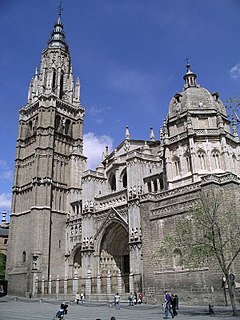 W
WThe Complutensian Polyglot Bible is the name given to the first printed polyglot of the entire Bible. The edition was initiated and financed by Cardinal Francisco Jiménez de Cisneros (1436–1517) and published by Complutense University in Alcalá de Henares, Spain. It includes the first printed editions of the Greek New Testament, the complete Septuagint, and the Targum Onkelos. Of the 600 six-volume sets which were printed, only 123 are known to have survived to date.
 W
WThe writing systems used in ancient Egypt were deciphered in the early nineteenth century through the work of several European scholars, especially Jean-François Champollion and Thomas Young. Ancient Egyptian forms of writing, which included the hieroglyphic, hieratic and demotic scripts, ceased to be understood in the fourth and fifth centuries AD, as the Coptic alphabet was increasingly used in their place. Later generations' knowledge of the older scripts was based on the work of Greek and Roman authors whose understanding was faulty. It was thus widely believed that Egyptian scripts were exclusively ideographic, representing ideas rather than sounds, and even that hieroglyphs were an esoteric, mystical script rather than a means of recording a spoken language. Some attempts at decipherment by Islamic and European scholars in the Middle Ages and early modern times acknowledged the script might have a phonetic component, but perception of hieroglyphs as purely ideographic hampered efforts to understand them as late as the eighteenth century.
 W
WThe House of Wisdom, also known as the Grand Library of Baghdad, refers to either a major Abbasid public academy and intellectual center in Baghdad or to a large private library belonging to the Abbasid Caliphs during the Islamic Golden Age. The House of Wisdom is the subject of an active dispute over its functions and existence as a formal academy, an issue complicated by a lack of physical evidence following the collapse of the Abbasid Caliphate and a reliance on corroboration of literary sources to construct a narrative. The House of Wisdom was founded either as a library for the collections of the Caliph Harun al-Rashid in the late 8th century or was a private collection created by Al-Mansur to house rare books and collections of poetry in both Arabic and Persian.
 W
WLatin translations of the 12th century were spurred by a major search by European scholars for new learning unavailable in western Europe at the time; their search led them to areas of southern Europe, particularly in central Spain and Sicily, which recently had come under Christian rule following their reconquest in the late 11th century. These areas had been under Muslim rule for a considerable time, and still had substantial Arabic-speaking populations to support their search. The combination of this accumulated knowledge and the substantial numbers of Arabic-speaking scholars there made these areas intellectually attractive, as well as culturally and politically accessible to Latin scholars. A typical story is that of Gerard of Cremona, who is said to have made his way to Toledo, well after its reconquest by Christians in 1085, because hearrived at a knowledge of each part of [philosophy] according to the study of the Latins, nevertheless, because of his love for the Almagest, which he did not find at all amongst the Latins, he made his way to Toledo, where seeing an abundance of books in Arabic on every subject, and pitying the poverty he had experienced among the Latins concerning these subjects, out of his desire to translate he thoroughly learnt the Arabic language....
 W
WOn Translating Homer, published in January 1861, was a printed version of the series of public lectures given by Matthew Arnold as Professor of Poetry at Oxford from 3 November 1860 to 18 December 1860.
 W
WDuring the Spanish Golden Age a great number of translations were made, specially from Arabic, Latin and Greek classics, into Spanish, and in turn, from Spanish into other languages.
 W
WThe Toledo School of Translators is the group of scholars who worked together in the city of Toledo during the 12th and 13th centuries, to translate many of the philosophical and scientific works from Classical Arabic.